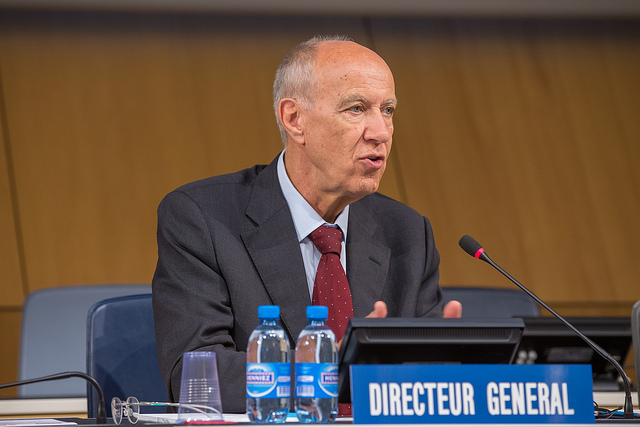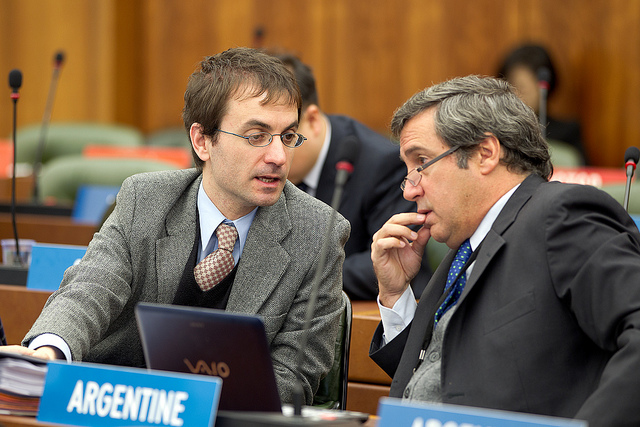Discussion of the internationalization of copyright limitations and exceptions, such as expanded exceptions to copyright for libraries, educational institutions, and people with disabilities, continue this week at the World Intellectual Property Organization (WIPO)’s Standing Committee on Copyright and Related Rights.
Discussions of access provisions in international copyright have been ongoing since 2004 and have, so far, resulted in the establishment of the 2013 Marrakesh Treaty to Facilitate Access to Published Works for Persons Who Are Blind, Visually Impaired or Otherwise Print Disabled. Today’s discussions focused on building on the work done under the Marrakesh Treaty to see the possible establishment of an international instrument internationalizing copyright limitations and exceptions for libraries and archives. International provisions are necessary because, as I note in chapter 4 of my book, International Copyright and Access to Knowledge (Cambridge UP, 2016):
libraries face a number of problems as they attempt to provide both traditional and new services to their users – many related to new technologies. Digitization, license agreements imposed by publishers of electronic journals and books, and Technological Protection Measures (TPMs) all introduce problems of access, preservation,and maintaining copyright exceptions. Moreover, the globalized possibilities of resource sharing, which take place increasingly across borders, are undermined by the territoriality of copyright law. IFLA, the ICA, and others suggest that a treaty is the best way to ensure that a minimum set of limitations and exceptions for libraries and archives exist, and that they apply in cross-border environments. (76)*
One focus of today’s WIPO discussions was on the topic of orphan works, or copyright works where the copyright owner can’t be found. Libraries and archives are often the “adoptive parents” of orphan works; they are in a position to facilitate access to these works, especially through digital means. However, copyright regimes often stand in the way, as can differing national regimes. The International Federation of Library Associations and Institutions (IFLA), which is active at the meetings, notes that:
…there is a lot of progress to be made, with as many different copyright regimes there as there are states, each giving different types and degrees of protection if any at all. Moreover, as digital technologies bring about radical change in the information environment, a failure to act is the same as going backwards. This is why IFLA is engaging in support of change both at the global (WIPO) level, and nationally.
Current proposals that are on the table for orphan works (see page 34-39 of the current working document) would allow entities such as libraries to reproduce, make available to the public, and otherwise use orphan works. Some proposals apply these provisions, as well, to retracted works (African Group, Equador, India), and some would require remuneration to authors or copyright owners who are subsequently identified (Equador). However, there is no consensus among states on such proposals, with the United States and the European Union among the key detractors.IFLA is asking for “changes which would give libraries the right to work across borders, to give access to orphan works, and to import books which are available in other countries.” For them, “the goal – an international framework which frees up libraries and librarians – is worth the effort.” After all, IFLA explains, “it’s through exceptions and limitations to copyright that we can do our job.”
The chair’s summary of today’s discussion is expected to be disseminated tonight.
Tomorrow’s discussions are expected to focus on the internationalization of exceptions and limitations for educational and research institutions and for persons with other disabilities.
For those following the discussion, a number of groups are blogging and tweeting from WIPO:
by Sara Bannerman



